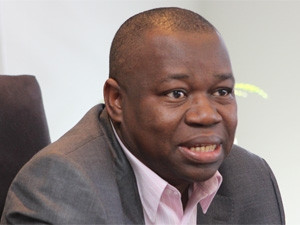
The SA National Roads Agency (Sanral) is miles off course if it thinks the South African public are ever going to buy into the mistruths it keeps spinning.
This is according to e-tolls' main opposition, the Opposition to Urban Tolling Alliance (Outa), in response to a number of statements made by the roads agency during an engagement it convened with media this week.
Outa chairperson Wayne Duvenage says Sanral "appears to operate in a universe disconnected from reality". He contests a number of points made by Sanral's communications head Vusi Mona and project manager of the Gauteng Freeway Improvement Project, Alex van Niekerk.
The notion that Sanral is ready to launch e-tolling in Gauteng; the number of e-tags that have been sold; how much commuters will pay for e-tolls; the statement that Sanral merely implements - but does not drive - e-tolling; and the cost of rolling the system out, says Outa, are all issues that Sanral has misrepresented or tainted with deceit.
Mona says Sanral called the media meeting to dispel whispers and "unfair reports", which he says have been doing the rounds for months now.
"As Sanral, we are prepared to accept our shortcomings and criticism where it is fair, but the way media reports have been going is unfair to Sanral. No one is brave enough to go to the policy-makers themselves and say their say, but Sanral is expected to argue the policy and its merits and demerits."
He says the state-owned roads agency is about the construction of roads and would prefer to not even be involved on the policy side of things. "If we could have it our way, National Treasury and citizens would take care of the funding.
"We are trying, as the implementing agency, to demonstrate the rationale behind the GFIP and how we are going to fund it. Through listening to each other and debating the issues, we hope South Africans will come around."
Mound of mistruths?
Outa says it "completely rejects" the claim that Sanral is ready - and has been so for over two years - to start tolling. "If Sanral were so efficient and their funding predicament was so serious, why are we still seeing a flurry of legislative amendments taking place over the past year?
"The regulatory environment forms part of the framework of readiness. Clearly they have failed themselves. We recall that Sanral argued in the Constitutional Court in August 2012, they could and would launch e-tolls within two weeks of the interdict being set aside. Almost a year has passed, and they are still beating about the bush."
As Sanral, we are prepared to accept our shortcomings and criticism where it is fair, but the way media reports have been going is unfair to Sanral, says communications head Vusi Mona.
Duvenage also maintains the numbers Sanral has been giving the media and public with regard to how many motorists have purchased e-tags are dubious. "The numbers have been up and down. At the end of last year into early 2013, the number was at 600 000. Then Mr Mona says this number was at 250 000 in April 2013, and jumped by 350 000 up to 600 000 over six weeks?"
He says this is an indication Sanral is trying to mislead the public, and "precisely why the public don't believe what they are saying".

In a statement coinciding with the media engagement, Mona said: "If you are one of those paying the maximum amount [R450 cap], you will have travelled through 301 gantries and done an average of 2 760km during the month on the e-tolled roads, if you are fitted with an e-tag and have an up-to-date registered account."
Duvenage says, evidenced by Sanral's own e-toll calculator, this is not the case. "We are able to rack up far less kilometres (average 1 598km), through almost half the number of gantries (average of 163) to reach the R450 cap at an average of 28c/km. Once again, the public receives false and misleading information from Sanral, and are then expected to believe Sanral's average spend data and statistics."
Mona told press on Wednesday that Sanral's job was merely to implement government policy. "Selling a policy package to citizens is not the role of Sanral. It is the role of those who own the policy, government."
Duvenage points out it was Sanral that commissioned research from the Graduate School of Business that proposed the cost benefit ratios, which formed a key motivation for e-tolls; and Sanral that provided what he says is "misleading and inaccurate" information on the costs of e-tolling (R395 million per annum) and other analysis presented to transport minister at the time, Jeff Radebe.
Dream on
Mona is of the opinion that the South African public, being what he says is a rational society that has been on the brink of pandemonium yet surfaced unscathed, will come around and "[Sanral] and the public will sort this matter out".
But Duvenage says this is a "dream". While South Africans are reasonable people, he says, "you can't expect people to respond reasonably to a system or a process that is unreasonable, irrational, inefficient and a gross waste of their money and time".
You can't expect people to respond reasonably to a system or a process that is unreasonable, irrational, inefficient and a gross waste of their money and time, says Outa chairperson Wayne Duvenage.
He says Sanral will continue to hope and spend millions on a "failed" advertising campaign that is not producing the results it is hoping for. "But hope doesn't drive change - action does.
"They are treating the public like fools and taking them for granted. The public have become extremely empowered through information-sharing about what the issues are on e-tolls. There will be no change of heart to a system that is flawed and not in their best interest."
Share